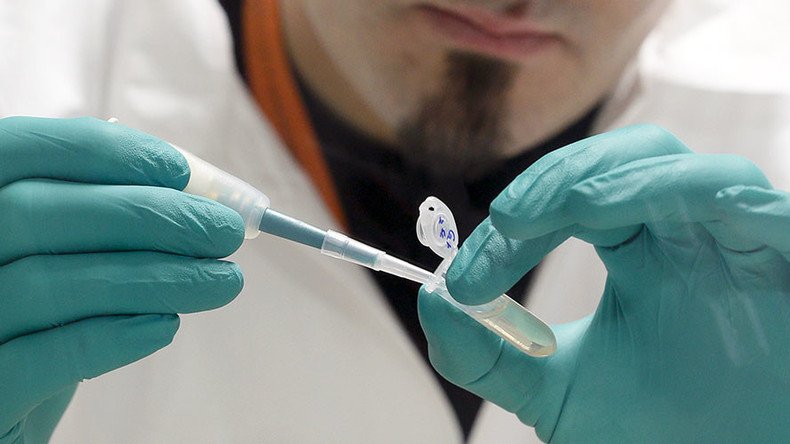‘Super-gonorrhea’ in UK may be untreatable, may show up in the US

Sixteen cases of antibiotic-resistant gonorrhea, a sexually transmitted disease, have been reported in the UK, leading the country’s chief medical officer to warn of the rise of “super-gonorrhea.”
The resistant strain hasn’t appeared in the US so far, but there is growing resistance to one of the antibiotics used to treat the sexually transmitted disease (STD). This week’s warning from Dame Sally Davies, the UK’s chief medical officer, followed a health alert concerning 16 cases in the north of England among heterosexuals.
“Gonorrhea is at risk of becoming an untreatable disease due to the continuing emergence of antimicrobial resistance,” she wrote in a letter to physicians and pharmacists, according to The Guardian.
“Gonorrhea has rapidly acquired resistance to new antibiotics, leaving few alternatives to the current recommendations. It is therefore extremely important that suboptimal treatment does not occur.”
Doctors warn of "super-gonorrhea" and fear it may be untreatable. https://t.co/nvM5kZP8uvpic.twitter.com/3CMzya3rUA
— Dr. Drew (@DrDrewHLN) December 30, 2015The UK reported 35,000 cases of gonorrhea last year. The strain of highly drug-resistant gonorrhea, first detected in March in Leeds, did not respond to a two-antibiotic combo treatment prescribed for the condition. The strain then spread to other northern cities in the UK. The problem is that some patients weren’t prescribed both of the antibiotics needed to kill the infection.
Gonorrhea is highly adaptable and infects both men and women. It can cause infections in the genitals, rectum, and throat, and is a very common infection among young people aged 15-24, according to the US Centers for Disease Control and Prevention (CDC).
Hey @anthonyweiner, @TheRickWilson cc’d @billclinton For you: Untreatable form of gonorrhea may show up in the U.S. https://t.co/BYNoOuTgyM
— Jay Caruso (@JayCaruso) December 31, 2015The medical director at the Montefiore AIDS Center told CBS News there is also concern that gonorrhea will become resistant in the US. He said the double treatment, an injectable ceftriaxone and azithromycin in pill form, are the standard antibiotics used to treat gonorrhea.
“It’s a very important issue from a public health standpoint,” Dr. Sachin Jain told CBS News.
RT moira930: Beware super gonorrhea: Is your state in a danger zone? | Fusion https://t.co/eOo1HivBUK
— John RT Bot (@JohnRTBot) December 30, 2015While there have been no untreatable cases reported in the US, the CDC has noticed an uptick in cases, with 350,062 recorded in 2014, up 5.1 percent from 2013 and 10.5 percent since 2010. The CDC has also detected increasing resistance to azithromycin, one of the antibiotics used in the treatment combo.
“There has been a steady rise in that resistance. But the factors leading into that are unclear,” Jain told CBS News.
The CDC said the STD can be spread by having vaginal, anal, or oral sex. Sometimes there are no symptoms. In men who do have symptoms, there may be a burning sensation while urinating, discharge from the penis, and swollen or painful testicles. In women, there may be a burning or painful sensation while urinating, increased vaginal discharge, and vaginal bleeding between periods.
Texas threatens #PlannedParenthood funding through Medicaid
https://t.co/oVMit0wBdRpic.twitter.com/l99bS7v1qw
— RT America (@RT_America) October 20, 2015Untreated, gonorrhea can lead to pelvic inflammation in women and sterility in men. The risk of catching the disease can be reduced by abstaining from sex, being in a monogamous relationship, or wearing a condom.
Rates of gonorrhea had been on a dramatic decline in the US for decades, before they began inching up in 2009. While the CDC reports over 350,000 cases of the STD, they estimate about 820,000 new cases annually.
READ MORE: Billboards blame 'hookup' apps for fostering risky sex behavior
Globally, some clinics report gonorrhea rates as high as 20 percent among adults, with a rate closer to 50 percent among commercial sex workers, according to a World Health Organization report.












